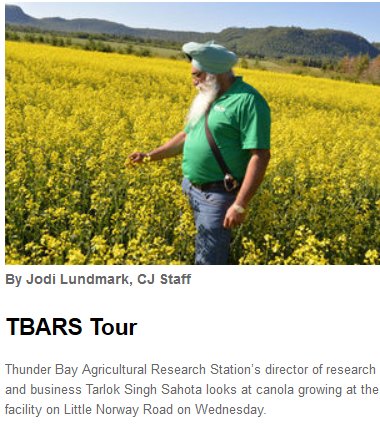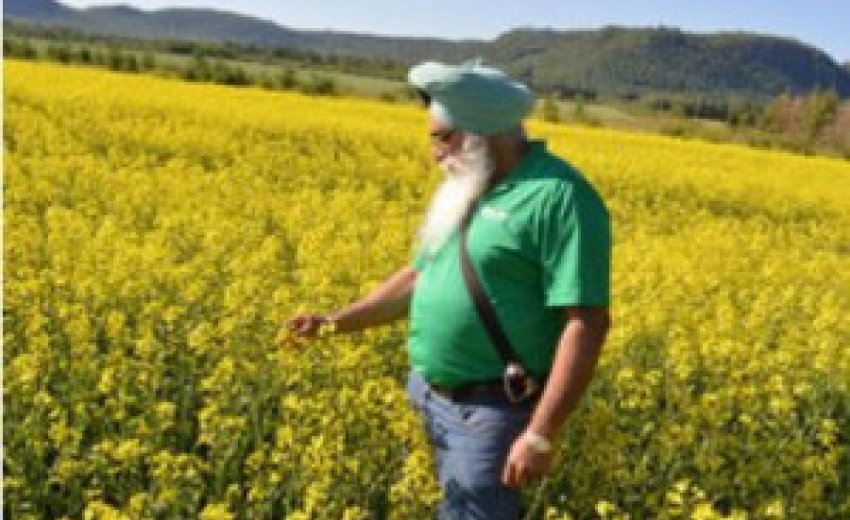Although its future remains in limbo, work at the Thunder Bay Agricultural Research Station continues.
 The research station, located on Little Norway Road, is running on limited staff and carryover funds from previous projects. Despite that the director of research and business, Tarlok Singh Sahota, said they’re doing their best to prove why the facility is necessary.
The research station, located on Little Norway Road, is running on limited staff and carryover funds from previous projects. Despite that the director of research and business, Tarlok Singh Sahota, said they’re doing their best to prove why the facility is necessary.
And that’s what he hoped to accomplish on Wednesday during the TBARS’s 2015 summer tour.
“The purpose of the tour is to show farmers what we do here,” said Sahota, adding the farmers can take what they learn and apply it to their own farms.
“For example, we will show them the high-yielding wheat varieties,” he said. “We not only get good yield, but also make better use of fertilizer nutrients, which are costly things.”
The research station is testing barley varieties this year for feed, forage and malting purposes. They also have blue tinge Ethiopian emmer wheat, which can be boiled and eaten as a whole grain rice. Gold harvest bush peas are also growing, which have a chestnut-flavour and can be used in salads and soups, said Sahota.
New this year are green pea varieties and brown and yellow flax.
Another heart-healthy crop the research station is trying is canola, which aligns with the TBARS’s mandate of supporting the local food system.
Sahota said one local farmer has a stone grinding mill and a canola crushing plant. He explained that they sell the product, which means the canola is grown, produced and sold locally.
Not only does the facility give farmers data, but they also give them cash crops like the canola to help with their daily income.
The TBARS has hired a consultant to help them come up with options on how to keep the station open.
Sahota said the consultant told him that in his 45 years as a scientist, manager and consultant, he had never seen a facility with such high productivity but so few staff and such a minimal budget as the TBARS.
“The Thunder Bay Agricultural Research Station shines in Canada,” added Sahota. “This is a very productive project and these (projects) have been applied on farms by farmers. They have been benefited from it. My humble request to the funders, to the politicians, to the government is this type of project should be continuously funded.”
